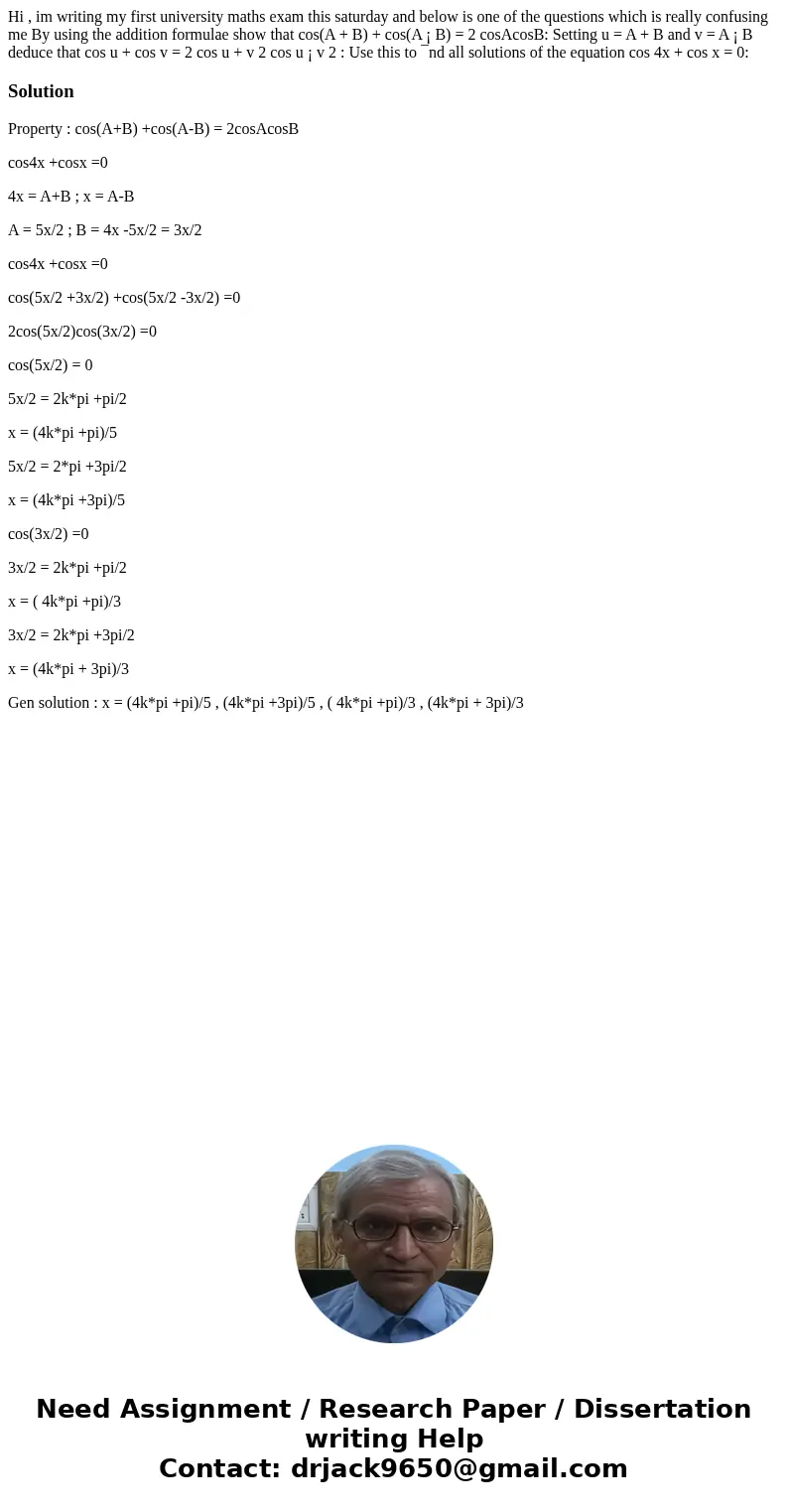Hi im writing my first university maths exam this saturday
Hi , im writing my first university maths exam this saturday and below is one of the questions which is really confusing me By using the addition formulae show that cos(A + B) + cos(A ¡ B) = 2 cosAcosB: Setting u = A + B and v = A ¡ B deduce that cos u + cos v = 2 cos u + v 2 cos u ¡ v 2 : Use this to ¯nd all solutions of the equation cos 4x + cos x = 0:
Solution
Property : cos(A+B) +cos(A-B) = 2cosAcosB
cos4x +cosx =0
4x = A+B ; x = A-B
A = 5x/2 ; B = 4x -5x/2 = 3x/2
cos4x +cosx =0
cos(5x/2 +3x/2) +cos(5x/2 -3x/2) =0
2cos(5x/2)cos(3x/2) =0
cos(5x/2) = 0
5x/2 = 2k*pi +pi/2
x = (4k*pi +pi)/5
5x/2 = 2*pi +3pi/2
x = (4k*pi +3pi)/5
cos(3x/2) =0
3x/2 = 2k*pi +pi/2
x = ( 4k*pi +pi)/3
3x/2 = 2k*pi +3pi/2
x = (4k*pi + 3pi)/3
Gen solution : x = (4k*pi +pi)/5 , (4k*pi +3pi)/5 , ( 4k*pi +pi)/3 , (4k*pi + 3pi)/3

 Homework Sourse
Homework Sourse